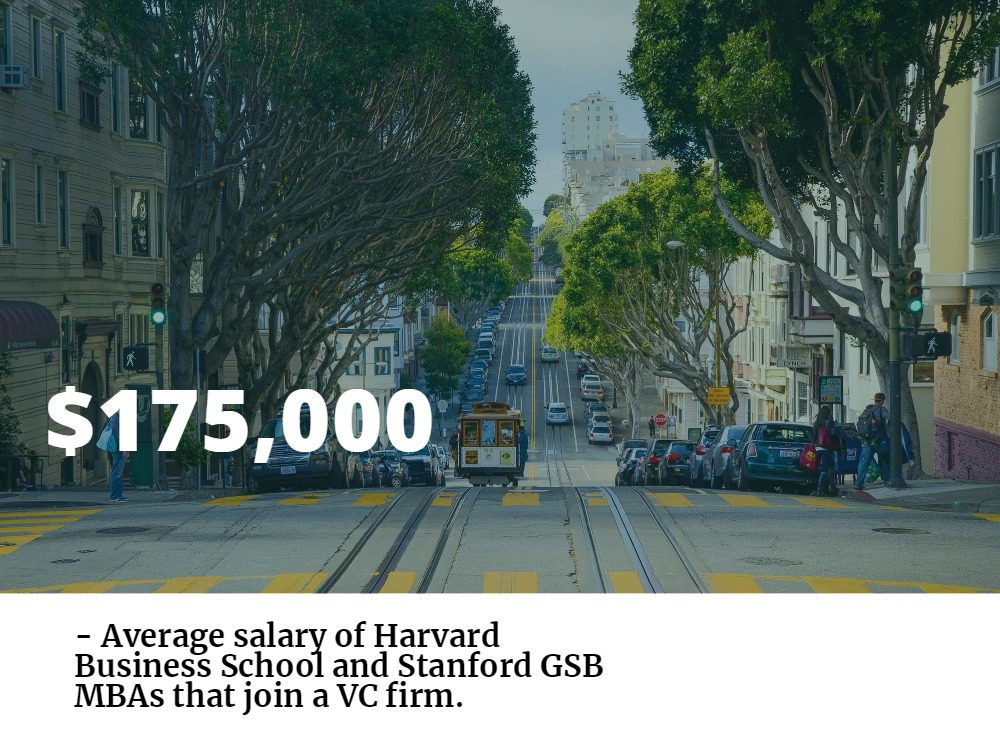Northwestern Kellogg & HKUST Lead the 2018 FT EMBA Rankings

Where should you go to school for your Executive MBA? Good question. While, the answer may not be quite so simple, an official EMBA ranking can help.
There are many things you should consider before choosing the best EMBA program for you including average graduation salary, industry employment, research interests, and more. However, a good place to start is with the 18th edition of the Financial Times Global Executive MBA Ranking. This ranking collects key data from business schools and alumni around the world to come up with a list of the top 100 best programs worldwide.
We’ve collated some of the critical data from the ranking study to give you insight into what’s going on in the world of EMBA programs.
EMBA Graduates Choose Industry and Manufacturing
Compared to full-time MBAs, EMBA graduates are much more likely to work in certain industries like manufacturing. In fact, three times as many EMBAs are employed in industry or manufacturing compared to their full-time peers. The figure accounts for 17 percent of all graduates. In comparison, only 10 percent of EMBA graduates are in consulting roles. And they’re less likely to work in finance, too.
EMBAs Earn More Money
EMBA graduates can also expect to earn more money than full-time MBAs after graduation. The average salary for an EMBA is $220,000 whereas an MBA alumnus can expect to make $146,000. It’s a large gap that’s similar to the salary gap between an MBA and a MiM graduate ($146,000 VS $67,000). Keep in mind, however, that the typical Executive MBA student is significantly older and often has more work experience.
In contrast, full-time MBAs win when it comes to salary boosts before and after earning the degree. MBA alumni generally increase their salary by 107 percent while EMBAs only experience a 59 percent boost.
Top 10 EMBA Programs
This year, the top ten EMBA programs, according to the Financial TImes, includes four joint programs. In fact, these were the top four programs in the world ranking well for post-EMBA salary, alumni leadership positions, and work experience. Each of these programs offer excellent networking opportunities thanks to different cohorts across different campuses, connecting students around the world.
Here’s how all the rankings stacked up.
1. Northwestern Kellogg & HKUST
This joint program ranks first for the third year in a row, and it’s the ninth time in 12 years that it has headed the list—the other three times it ranked second. The program is known for having the highest average salary three years post-graduation, $507,000—$140,000 more than the second-highest salary. It’s also known for having half of its alumni as company leaders three years post-graduation.

No EMBA has dominated the annual FT ranking quite like the Northwestern Kellogg & HKUST join program, earning top billing once again for 2018.
2. HEC Paris, LSE, & NYU Stern
This trium global EMBA program ranks second in 2018, up from fifth the previous year. The program is ranked first in work experience, languages, and international course experience rank. It also ranks highly in average salary ($347,970) with an expected 60 percent salary increase three years post-EMBA.
3. Tsinghua University & INSEAD
For the second year in a row, the Tsinghua-INSEAD dual degree MBA comes in third overall on the FT EMBA ranking. Located in China, Singapore, France, and the UAE, the program is known for its high salary three years post graduation ($365,746), and its high percentage of female students (45 percent).
The rest of the top ten shakes down as follows:
- EMBA—Global Asia: Columbia Business School, HKU, & London Business School
- Ceibs
- HEC Paris
- Washington University Olin Business School
- Shanghai: Jiao Tong University Antai
- IESE Business School
- MIT Sloan School of Management
Surprising Schools
There were quite a few surprises in this year’s EMBA ranking.
- Though HEC Paris has ranked in the top five since 2006 because of its joint program with NYU Stern and LSE, this was the first year the school entered the top ten ranking on its own. The HEC Paris solo EMBA program ranks sixth overall, making it the highest new entrant.
- IESE Business School took home the crown as the top EMBA program for the new criterion corporate social responsibility (CSR).
- The University of Toronto Rotman School of Management EMBA moved up the most places in 2018, rising to 47th place overall—20 places higher.

No school saw a bigger rankings jump than the University of Toronto Rotman School of Management, rising 20 spots in 2018.
FT EMBA Ranking Methodology
To come up with the 2018 EMBA ranking, the Financial Times reached out to a record 139 programs with two online surveys: the first completed by the school and the second by alumni who graduated from programs in 2014. The methodology of the ranking is as follows:
- Alumni were required to provide feedback on salary today, salary increase, career progress, work experience, and aims achieved—accounting for 55 percent of the ranking’s weight.
- Schools provided insight into ten criteria, accounting for 35 percent of the total ranking. Criteria included: gender and international diversity, board members, international program reach, and more.
- Accounting for the final 10 percent of the ranking was the FT research rank, which looks at the number of articles published by a school’s full-time faculty.
And, for the first time ever, this year’s EMBA ranking included a new criterion for corporate social responsibility (CSR). This new criterion took a look at how many of a school’s core courses were dedicated to ethics, social, and environmental issues. Weighting at 3 percent, this criteria replaced the number of Ph.D. graduates per school.
The Perfect MBA Career: Portfolio Manager

If working in investment strategy seems appealing, then a job as a portfolio manager may be right for you.
Hot MBA Jobs: Venture Capital Associate

If you’ve ever used an app like Uber or Snapchat, odds are you’ve benefited from the work of a venture capital associate. Through skills like financial modeling, evaluations, and a little bit of luck, venture capital associates find ‘the next big thing’ and provide the money to make it happen. And though not all of these skills can be taught, top venture capital firms are looking to business programs to find the perfect candidate.
For students looking to join the venture capital industry, the path isn’t always an easy one. The level of experience required in the field means that very few students find venture capital associate positions straight out of their MBA programs. This doesn’t seem to deter those who are ready to work for it, however. Last year, private equity was ranked as the second-biggest employer for MBA graduates at the Harvard Business School.
Before you get started on the road to becoming a venture capital associate, let’s take a look at what the path to your dream job might look like.
The Venture Capitalist Job Role
Venture capital (VC) firms take on the risky but often lucrative job of searching the startup world for the next big thing. In exchange for providing capital infusions to startup companies in the early stages of their business, venture capitalists receive both oversight and ownership in the company.
For associates at venture capital firms, the job primarily involves sourcing new deals—setting up meetings with entrepreneurs and companies to find prospective investments—and supporting existing ones. As most roles in financial analysis go, VC associates are responsible for supporting all aspects of an investment, from the initial sourcing, modeling, and execution of a deal.
The exact type of work done by a VC associate may be determined by the type of for it is. For firms more focused on funding startups in their early stages, the associates work may be more concentrated on sourcing, while firms working more on late-stage financing will likely require more diligence and modeling from its associates.
Venture Capitalist Salary
While the exact roles of a venture capital associate may vary widely with the firm and its specialization, the general trend shows VC work to be an incredibly lucrative career. In 2016, graduates from top MBA programs like Stanford GSB and Harvard Business School joined VC firms at an average salary of $175,000.
According to Payscale, the average salary across all education levels for an associate at a venture capital firm is $92,067. The level of experience can make a big difference when it comes to the venture capital associate role, as well. Mid-career professionals in this role make on average 24 percent more than the national average, and experienced professionals up to 51 percent more.

Where Do Venture Capital Associates Work?
Venture capital firms can be found throughout the world in a variety of fields, leaving a wide range of opportunities open to up and coming VC associates. Certainly, studying and working near concentrated start up hubs like the Silicon Valley in California or the UK’s Silicon Fen can help boost an MBAs ability to get their foot in the door.
Still, a quick look at open venture capital associate positions open at the time of writing reveal diverse offerings spread throughout the country, from Palo Alto, CA to Philadelphia, PA to Durham, NC. MBAs looking to pursue a role in venture capitalism may also look for roles that allow them to pursue other areas of business they are passionate about, since VC firms are typically specialized in the type of startup they will invest in, be it fintech, health science, and other various fields.
Some of the world’s top corporations also have venture capital firms that will invest in companies related to their work. This includes companies like Google, Intel, Salesforce, Johnson & Johnson, and more.
The Venture Capital Associate Education
VC firms looking for associates are likely looking for MBAs who have had some previous experience on the workforce. While it’s not impossible for those without MBA degrees to begin as associates, opportunities for advancement to a partner level role are typically unusual without one. Typically, pre-MBA associates are expected to only work two to three years at a firm and then move on.
For post-MBA associates, it’s expected that these individuals will be working towards a partner level position. Firms will be looking for candidates with strong records in analysis who can demonstrate a deep understanding of markets and industries. Given that even MBA graduates will be expected to have a certain level of experience before joining a VC firm, these roles can be incredibly competitive. On-campus recruiting is uncommon for these firms, and typically only graduates from top level MBA programs are recruited to these positions. Basically, if you are determined to enter the venture capital industry, you will not only need an MBA education- you will need to prove you have the best MBA education.
The Top VC MBA Programs
To join the incredibly competitive field of Venture Capitalism, MBA graduates need a demonstrated record of financial analysis skills and a degree with the reputation to back it up. Some of the top schools for those looking to enter the VC or private equity fields overlap with some of the highest ranked MBA programs in the world. Schools that have strong relationships with investment banks and those with strong finance programs will likely offer the most opportunities for students looking for careers as VC associates. Some of the top schools for the field are listed below:
- Booth School of Business – University of Chicago: The full-time MBA program at University of Chicago’s Booth School of Business has a strong focus on venture capital and private equity through the Polsky Center for Entrepreneurship. The program provides strong networking opportunities for their MBAs through student organizations like the Entrepreneurship and Venture Capital (EVP) Group. The group offers career development, networking, activities, and speakers covering the most important topics in venture capital today.
- Kellogg School of Management – Northwestern University: MBA students at the Kellogg School of Management will find a huge focus on venture capitalism through the school’s Heizer Center for Private Equity and Venture Capital. Part of the center is the school’s Venture Lab, an experiential learning course that allows students hands-on experience with a quarter-long internship at venture funds, incubators or start-ups.
- Harvard Business School: The top-ranked Harvard Business School has one of the highest success rates in the world for students interested in venture capitalism. In 2015, roughly 14 percent of HBS graduates went into positions at private equity or venture capital firms. Organizations like the Venture Capital & Private Equity Club– which provides a speaker series, career treks, and an annual conference—allows students to get acquainted with the industry long before graduation.
MBA Battle: BU Questrom v. BC Carroll

Boston College and Boston University are two of the metro’s most popular and recognizable schools. But for two schools with a lot in common, BU and BC don’t seem to like each other much. Continue reading…
What Are The 5 Highest Paying Consulting Firms in the World?

“Is this going to be worth it?”
If you are currently or have ever considered earning an MBA degree, it’s likely that you’ve asked yourself this question. Given the burgeoning cost of tuition—especially for top business programs—plus the loss in income and cost of living while pursuing your education, it’s a fair question to ask. Does it make sense to invest this sort of money into your education with no guaranteed result?
Of course, many of the benefits of earning an MBA simply can’t be quantified and boiled down to raw numbers. The new opportunities created through study abroad or case competitions, the expansion of your professional network and chance to connect with industry professionals. All of these considerations can make it difficult to ever truly gain perspective on an MBA degree’s worth.
Thankfully, there are some areas where the numbers still do the talking. In particular: post-graduate salary. This is one of the easiest and simplest ways to see the true value of an MBA. And it’s not just helpful to look at the increase in salary after earning an MBA—it can be just as enlightening to see the difference in post-graduate salary for various MBA concentrations. This data can help you make important choices about what kind of path you’d like to pursue while earning your MBA, and how to make the most out of the time and money spent on your education.
U.S. News & World Report found found that strategy, while one of the least popular MBA concentrations (chosen by just 4.3 percent of business school students), led to some of the highest paying jobs after graduation. Since students concentrating in strategy typically go into jobs at consulting firms following graduation, they are more likely to earn high salaries that can help increase the overall value of their degree—not to mention pay off their student loans much faster.
For students looking to increase the worth of their MBA with a high-paying job in consulting, we’ve rounded up the highest paying firms in the consulting industry. Working towards careers in these top companies will guarantee that the answer to “is this going to be worth it?” will always be “yes!”
The 5 Highest Paying Consulting Firms

Formerly known as Ernst & Young, EY-Parthenon is one of the top paying consulting firms for MBA graduates. The company is headquartered in London, England, with more than 250,000 employees at offices throughout the world. EY is known as one of the “Big Four” accounting firms, joining Deloitte, PwC, and KPMG as the four largest professional services networks in the world. Last year, EY was also named 29th on the “100 Best Companies to Work For” list from Fortune.
According to Business Insider, EY-Parthenon employees with just an undergraduate degree make up to, on average, $110,000 annually, including base salary, signing bonuses, and extra incentives. Management Consulted data found that MBA grads earned an astounding base salary of $170,000 at the company. That figure doesn’t include signing bonuses, relocation expenses, and more.

Founded in 1926 by University of Chicago economics professor James McKinsey, McKinsey & Company has transformed into one of the world’s most iconic consulting empires. The company has opened in more than 120 global cities, employing more than 14,000 consultants—many of which comes from prestigious MBA institutions.
According to Management Consulted data, McKinsey & Company is the second-highest paying consulting firm in the world for MBA grads, with offered base salaries coming in at $152,000. With an added potential performance bonus of $35,000, those figures can rise to $187,500 in just one year.

Strategy& has grown exceedingly since its beginnings as Booz & Company in 1914. One of the top global strategy consulting firms in the country, the company now has 57 offices throughout the world, revenue upwards of $1.3 billion, and 3,000 employees. Nearly a century after their founding, in 2013, the company was acquired by PricewaterhouseCoopers (PwC) and officially renamed to Strategy&.
The company comes in third overall among for annual base compensation for MBA grads, at a lofty $152,000. The company also offers one of the most unique and lucrative retirement funding options for consulting employees, with 6 percent of base salary and bonuses matched for its 401k plan.

L.E.K. is technically the youngest company to make the top five, which was founded in the early 1980s by former Bain partners James Lawrence, Iain Evans, and Richard Koch. Headquartered in both Boston and London, L.E.K. is also the smallest company on this list, with around 3,000 employees.
Despite its size and relative newness in comparison to many of the other companies on this list, L.E.K. pays its employees more-than-handsomely, offering a tempting base salary of $150,000 and upwards of $25,000 in performance-based potential incentives.

Bain & Company, headquartered in Boston, Massachusetts, is a global management consultancy firm providing advice for public, private, and non-profit organizations. Along with the Boston Consulting Group and McKinsey & Company, Bain & Company is one of the “Big Three” firms. Founded in 1973, Bain & Co. today has more than 8,000 employees throughout the world and an estimated revenue between $3.7 and $4.5 billion.
Bain offers its recently employed MBA grads a starting base salary comes in slightly above aforementioned Deloitte employees, snagging $148,000 per year, which can grow to $185,000 in total compensation.
Honorable Mentions

The Boston Consulting Group, founded in 1963, now has more than 90 offices in 50 countries, advising clients throughout the private, public, and not-profit sectors.
The Massachusetts institution offers its MBA graduates right around the same compensation as Bain & Co, the companies unofficial direct competitor. Base salaries come in around $147,000, but massive (and we mean massive) bonus incentives can bring that total up to $191,100.

Another one of the “Big Four,” Deloitte has witnessed non-stop growth since its founding in 1845. Today, the firm makes more than $38.8 billion USD in revenue with roughly 263,900 employees throughout the world. As of 2016, Deloitte was ranked as the sixth largest privately owned organization in the U.S. The firm’s offerings span across audit, tax, consulting, financial advisory, and enterprise risk services, with offices across the world in cities like Los Angeles, Tokyo, Madrid, Tel Aviv, and many more.
Management Consulted data found that MBA grads at Deloitte reported a base salary slightly smaller than its aforementioned contemporaries, pulling in $140,000 per year. Deloitte separates itself from its competition by offering returning interns a potential to pay for the send year of their MBA education in the form of reimbursement.
What MBAs Should Know About BMO Financial

BMO Financial Group, established in 1817 as Bank of Montreal, is one of the largest diversified financial service providers in North America. According to BMO, more than 45,000 employees serve the financial needs of more than 12 million customers. Continue reading…
